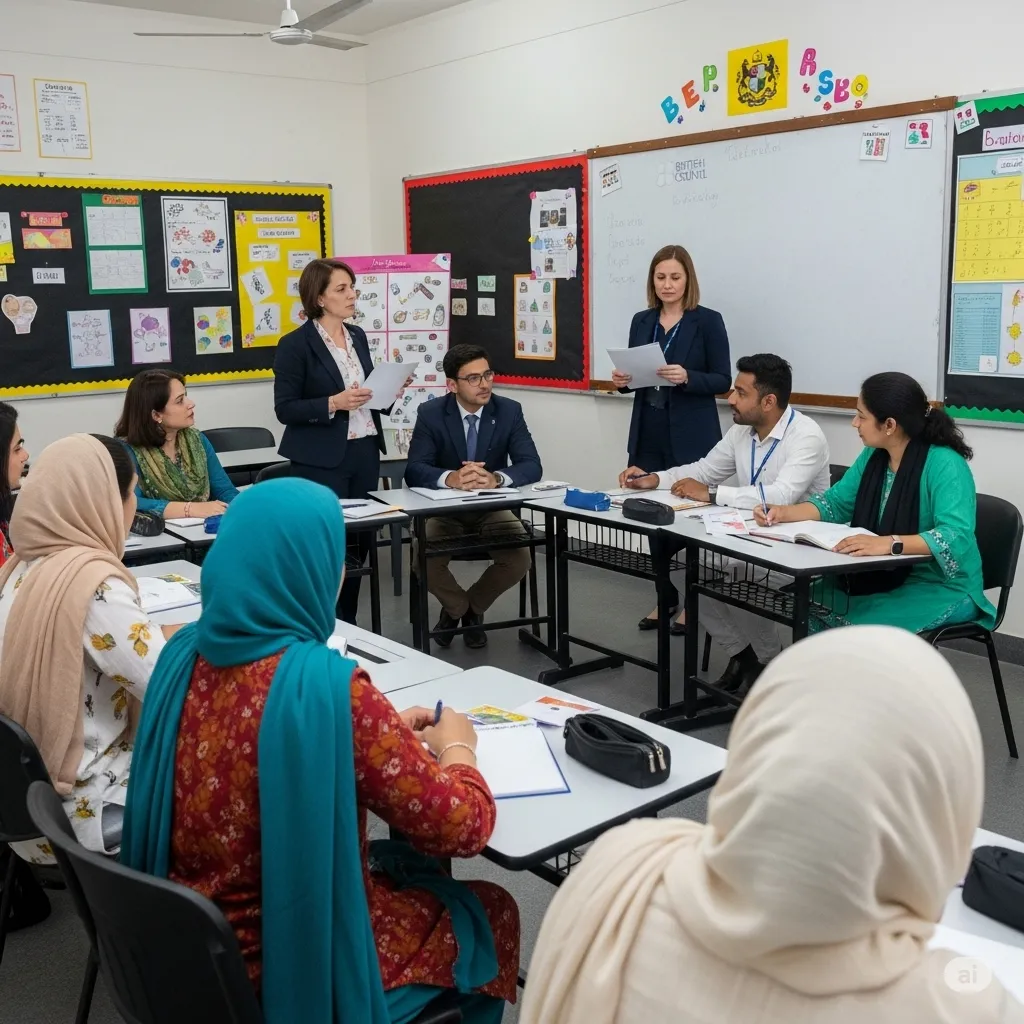The British Council and School Education and Literacy Department (SELD) Sindh’s partnership to transform English teaching marks a groundbreaking step for education in the province. This strategic partnership will bring the British Council’s famous “English as a Subject for Teachers and Educators (EaSTE)” project to 30,000 newly inducted Primary School Teachers (PSTs) and Early Childhood Teachers (ECTs) throughout Sindh through a freshly signed Letter of Intent (LoI) between the British Council and the School Education and Literacy Department (SELD). This project hopes to change public school instruction of English—as well as other languages—therefore helping roughly two million youngsters.
By means of a recently signed Letter of Intent (LoI), British Council Sindh English teaching this strategic collaboration will provide 30,000 newly inducted Primary School Teachers (PSTs) and Early Childhood Teachers (ECTs) throughout Sindh with the British Council’s successful programme “English as a Subject for Teachers and Educators (EaSTE) This project hopes to transform public schools’ instruction of English—and other languages—thereby helping almost 2 million kids.
Teachers will be more ready to meet the varied linguistic and cultural realities of Sindh’s classrooms by using inclusive, multilingual, contemporary teaching techniques. The British Council will also launch a scalable digital Learning Management System (LMS) under the Operational Alliance Agreement to facilitate extensive, continuous professional development. Furthermore, 1,000 inservice teachers will be trained as mentors, so providing long-lasting support and peer counsel for thousands of teachers across the province.
Country Director of the British Council Pakistan James Hampson stressed the importance of this revived cooperation, saying: “Today’s agreement renews our relationship with and dedication to the people and Government of Sindh. Our goal of helping two million kids and thirty thousand instructors is a significant next step. His remarks highlight how crucial it is to scale up initiatives to raise teaching quality and to draw on past accomplishments.
Investing in Quality: Empowering Teachers to Empower Children
Sindh’s EaSTE programme shows a shared dedication to educational quality—not only access. Emphasizing this, Education Minister Sardar Ali Shah remarked: “Our focus is not only on access but also on quality. This project helps like Scholorship Programmes our educators to have the tools they need to teach English effectively, hence mirroring the linguistic and cultural reality of our classrooms. The programme aspires for long-lasting changes instead of quick fixes by placing professional development and capacity building as the following phase after recruiting.
Following EaSTE’s amazing success in Punjab, where it improved English teaching for more than 140,000 instructors, this project establishes a powerful example for Sindh. Incorporating a strong digital LMS, individualized mentoring programs, and research-backed pedagogical techniques guarantees that teachers in both urban and rural locations throughout Sindh will get the same excellent training. Classrooms where English and other languages are taught utilizing approaches that encourage inclusiveness, critical thinking, and 21st century abilities will result in new opportunities for children to flourish in a world more and more global.
Highlighting the need of multistakeholder projects in education reform, this partnership combines local insights from Sindh’s education system with world knowledge from the British Council. Together, these partners hope to develop a sustainable model for professional growth that might inspire other provinces and even other nations struggling with comparable issues in multilingual education settings.
For details Click the Links bellow:



